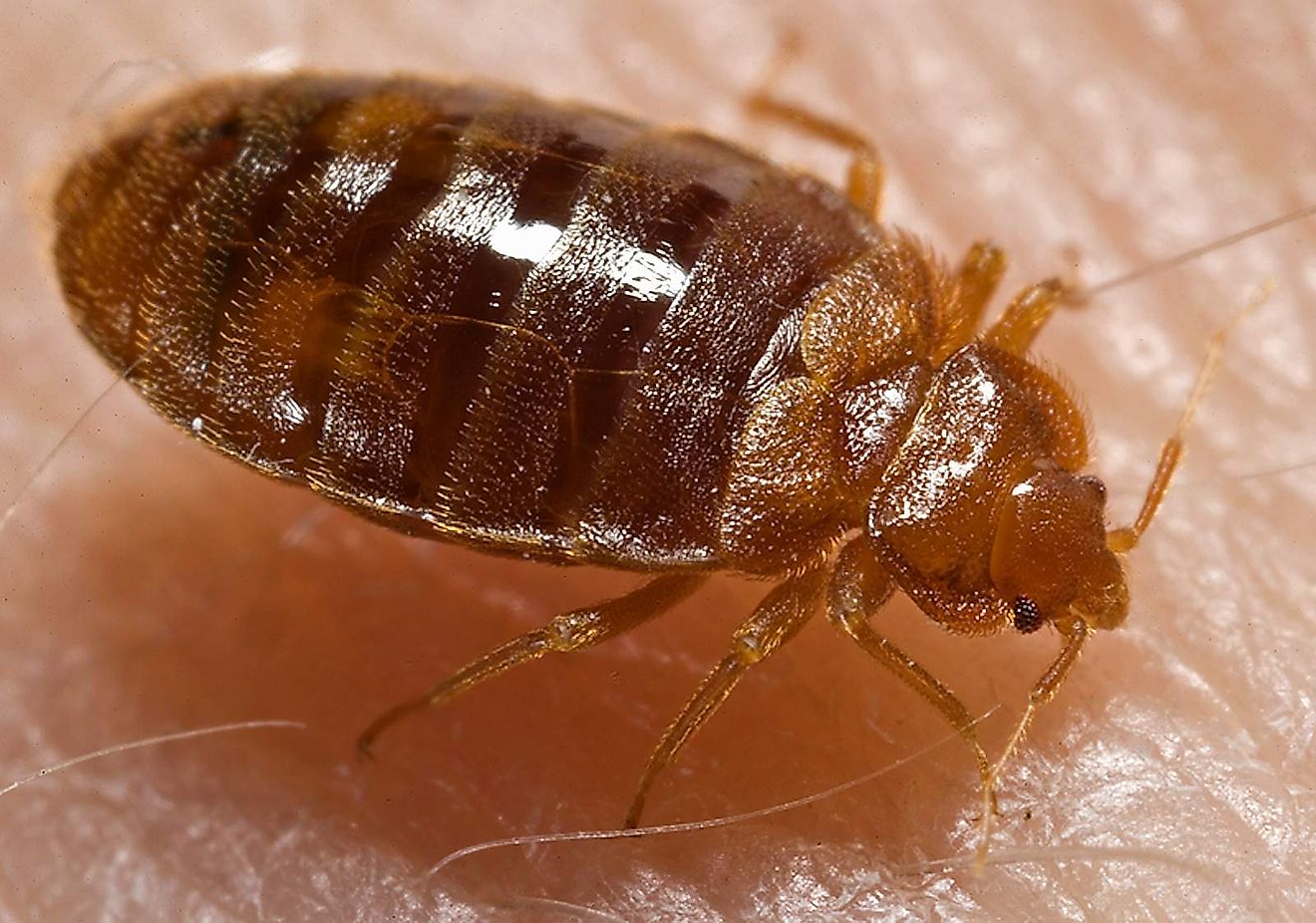What Do Bed Bugs Look Like?

- Bed bugs insects which suck human blood and can cause health impact on their host
- The bugs are reddish-brown with oval-shaped body
- An adult bed bug resembles a booklice or a small cockroach
Bed bugs are blood-sucking insects whose bites can cause health impacts such as skin rashes, allergic symptoms, and psychological effects. These tiny insects are usually more active at night and can occur in all regions around the globe. If left untreated, bed bugs can multiply very fast and spread from an infested mattress to the entire house and even find their way to the neighbor’s house. The rate of bed bug infestation has been relatively common since the 1990s, with the increased rate attributed to increased human travel, resistance to pesticides, and the exchange of furnishing. To effectively control these insects, they need to be correctly identified.
Appearance
Bed bugs have, on several occasions, been confused with other small brown insects. These blood-sucking insects can be confused with several other brown insets such as small cockroaches, booklice, ticks, and carpet beetles. Bed bug infestation is commonly caused by two species of the insect, including the common Cimex lectularius and the rare Cimex hemipterus. These two species of bed bugs feed exclusively on human blood and can survive for a whole year without feeding. An adult bed bug is dark brown to reddish-brown with a long, flat, oval body which is almost the size of an apple seed. Other bed bugs are not flat rather they look like a tiny inflated brown balloon, especially after feeding.
An adult bug can grow to 5 mm long and 1.5-3 mm wide. Bed bugs do not have hind wings while the front vestigial wings have been reduced to a pad-like structure. Their mouths are modified in such a way that they can easily saw through a person’s skin and inject saliva containing painkiller and anticoagulant. Like other true bugs, bed bugs produce a strange odor when crushed.

Checking for a Bed Bug
Bed bugs cannot be identified by the appearance of the bite only because different people react differently to the bite. The bite resembles bites from other insects such as fleas and chiggers. Sometimes, locating bed bugs may not be easy unless one is aware of some of the signs the insect leaves behind such as bed bug feces and rusty stains left on the beddings. In the beginning, a bud bug will exist alone but after sometimes it will congregate with the others. Once the bug finishes sucking blood, it will return to its harborage where fellow bugs are. They can also hide in luggage, car seats, furniture, electric sockets, or inside electronics. Bed bugs are also known to thrive on domestic cats and dogs, though they prefer humans as their hosts.
Prevention and Management
To prevent the spread of bed bugs, people are advised to take precautions while visiting infested areas, including thoroughly checking clothing and shoes on leaving the site, changing clothes before entering the house, and washing the used clothes immediately. It is also necessary for one to check for bed bugs, especially in sleeping areas such as lodging. In case of an infestation, mechanical treatment such as heat-treating and vacuuming will be necessary. Rising the room temperature to about 45°C or lowering the temperature to -17°C will certainly kill the insects.











